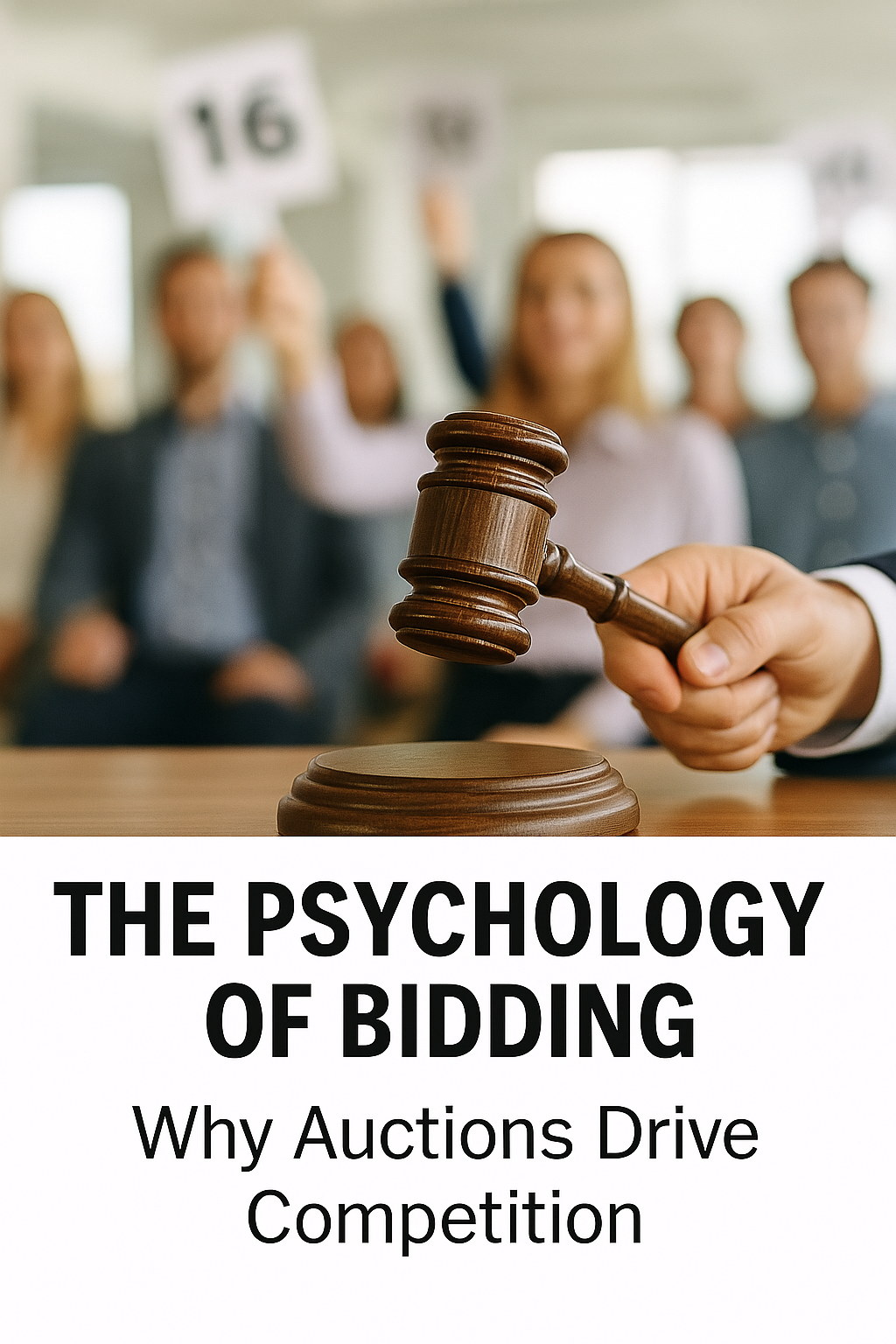At Whitaker Marketing Group, we’ve seen it time and again—when the auctioneer’s chant begins and the first bid is placed, something powerful happens in the room (and online). Competition intensifies, bidders become engaged, and farmland often sells for more than anyone expected. But why do auctions have this effect? The answer lies in the psychology of bidding.
Scarcity and Urgency: The Auction Mindset
One of the strongest drivers of auction competition is scarcity. Buyers know there is only one opportunity to purchase the specific farmland being offered. Auctions also create urgency—there’s a set time and place to act, and once the gavel falls, the opportunity is gone. Behavioral economists have found that scarcity triggers a fear of missing out (FOMO), which motivates people to act quickly and decisively. Research published by the American Psychological Association suggests that scarcity and urgency increase perceived value, driving people to compete harder in decision-making situations.
Competitive Drive and Social Proof
Bidding isn’t just about numbers—it’s about winning. When multiple people show interest in a property, it validates its value through social proof. Simply put, if others are willing to pay more, it must be worth it. Auctions amplify this effect by creating a public competition where each bid is visible. Studies from the National Bureau of Economic Research (NBER) show that people are more willing to push beyond their original limits when they’re in competitive, public settings.
The Role of Emotion in Auctions
While farmland buyers are highly rational—considering CSR2 scores, income history, and future potential—they are also human. Emotions play a role in every auction:
-Excitement: The energy of a live auction can spark adrenaline, making bidding more engaging.
-Fear of Loss: The thought of losing a once-in-a-lifetime property can push bidders past their comfort zone.
-Satisfaction: Winning at auction provides a sense of accomplishment and pride.
Neuroscience research from Harvard Business Review highlights that emotional engagement increases customer loyalty and willingness to spend. Auctions tap into these emotional triggers more effectively than private negotiations.
Transparency and Trust
Another psychological advantage of auctions is transparency. Every bidder sees the same information, the same opportunities, and the same outcome. This levels the playing field and builds trust in the process. Unlike traditional negotiations that happen behind closed doors, auctions allow buyers to witness true market demand in real time. This transparency reinforces confidence and often encourages bidders to stay in the game longer.
Strategies for Selles
Understanding the psychology of bidding can help sellers maximize results:
-Promote Scarcity: Highlight the uniqueness of the property and the one-time opportunity to buy.
-Build Excitement Early: Use marketing campaigns that generate anticipation before auction day.
-Leverage Competition: Encourage strong participation through broad advertising and targeted outreach.
-Maintain Transparency: Provide clear terms, yield history, and CSR2 data so buyers feel secure.
At Whitaker Marketing Group, we specialize in creating the right auction environment where these psychological factors work together to benefit our sellers.
Final Thoughts
The psychology of bidding explains why auctions consistently drive competition and strong outcomes. By blending scarcity, urgency, social proof, and transparency, auctions create a unique environment where buyers compete vigorously—and sellers benefit. If you’re considering selling farmland, remember: the psychology of the auction is on your side.
515-996-5263 |✉️info@wmgauction.com